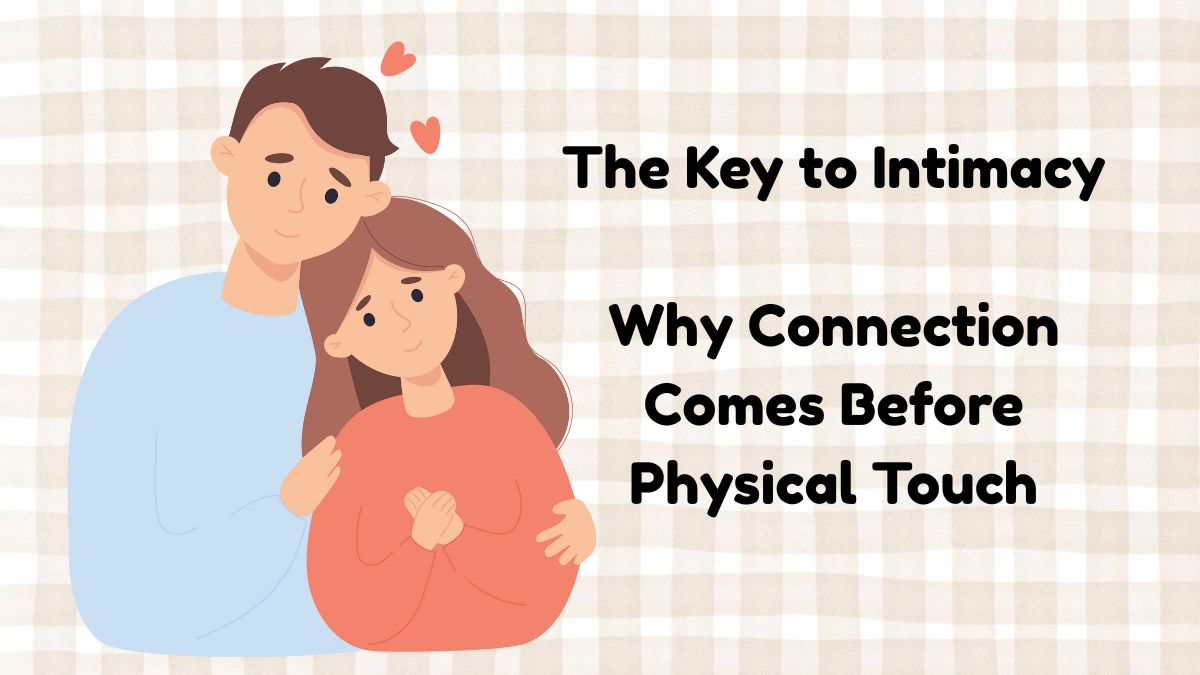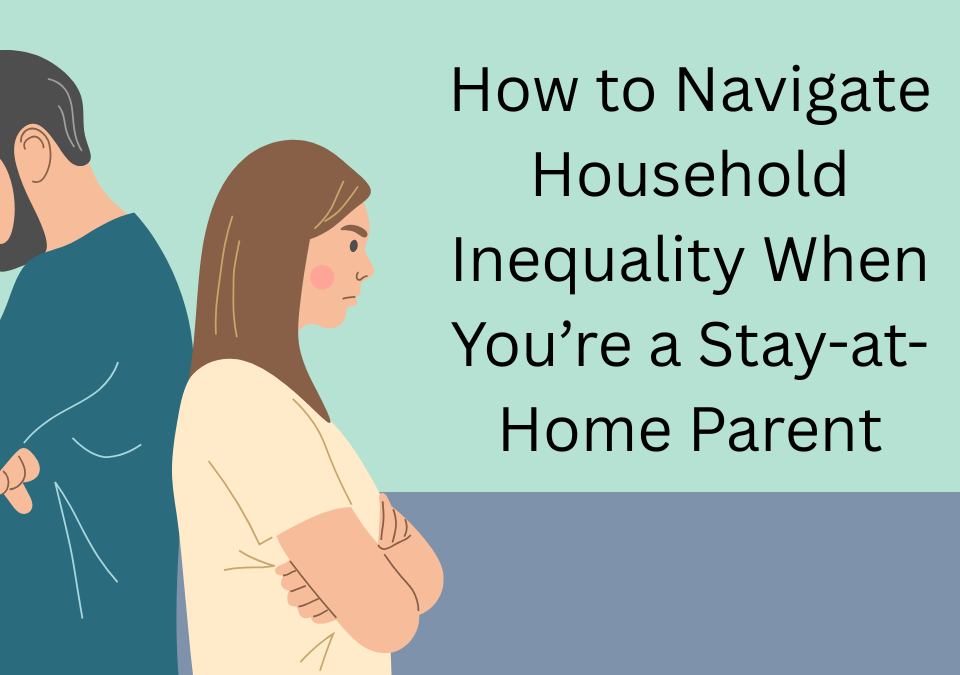
When the Breadwinner Won’t Help at Home: How to Address the Imbalance

“You Wanted the Children”—The Unspoken Weight of Those Words

In relationships, intimacy isn’t just about physical attraction or satisfying desires—it’s about emotional connection. Yet too many men fail to understand that when a wife is overwhelmed, stressed, and emotionally drained, physical touch without genuine affection can feel more like an imposition than an invitation. When you treat her like your partner—acknowledging her needs, showing respect, and fostering connection—your relationship can thrive. But when you focus solely on your own desires, ignoring her feelings, the dynamic becomes unbalanced, and intimacy suffers as a result.
Table of Contents
The Problem with “Unwanted” Touch
Think about this: imagine you’re in the middle of a stressful task—say, emptying the dishwasher after a long day of managing both household duties and work. You’re focused on trying to get it done, when suddenly, you’re touched in a way that seems out of nowhere—maybe a slap on the rear or an unsolicited grab. How would that make you feel? For many women, it’s not a playful gesture but a disruption to their mental space. They may not even feel connected or desired in a loving way, but rather objectified or disrespected. This kind of aggressive touch is often a reminder that the partner is thinking about their own desires, not her well-being.
When you’re in the middle of trying to juggle family obligations and personal responsibilities, a sudden touch that doesn’t acknowledge your emotional state can feel like another burden. You’re focused on doing for others, but your partner is seeking to satisfy his own immediate need for pleasure without considering what she needs. It’s not just inconsiderate; it’s selfish. And this disconnect can make her feel more distant rather than desired.
Emotional Rejection and Its Impact
To understand why this kind of touch can lead to emotional rejection, consider that the foundation of intimacy is built on emotional connection. If she feels overwhelmed with bills, managing children, or running a household, her emotional tank might be empty. When she’s in a state of mental and emotional exhaustion, she may not have the mental space for physical intimacy.
This is not because she doesn’t care about her partner, but because she feels as though her contributions are not being acknowledged, her emotions are being disregarded, and her needs are secondary. If you’re not creating the emotional connection she craves—by asking about her day, listening to her concerns, or helping alleviate some of the pressures she faces—then physical intimacy can easily feel like an obligation or chore, rather than a shared experience of closeness and connection.
Connecting Beyond the Physical: Why “Play Starts Early”
The truth is, intimacy isn’t something that can be switched on with a physical touch or a quick gesture. It starts long before the act itself, in how you treat each other on a daily basis. This includes how you communicate, how much effort you put into her emotional well-being, and how you engage with her throughout the day. Relationships require effort, and that effort needs to be consistent. Simply expecting her to be “in the mood” when you are, without considering what she needs emotionally, is unfair and unkind.
Take a moment to ask yourself: When was the last time you checked in on her emotionally? How often do you take the time to express genuine care and affection that isn’t tied to your desire for sex? Women are more likely to want to be intimate when they feel heard, seen, and supported—not when they’re made to feel like a tool for gratification. By showing affection and interest in her as a person, rather than just as a partner for sex, you build the foundation for genuine intimacy.
Reframing the Power Dynamic
If you’re expecting your wife to cater to your desires just because you’re “in the mood,” you’re missing the point. True intimacy doesn’t come from selfishly focusing on your desires. It’s about making her feel desired, heard, and appreciated—not just in the bedroom but throughout the day. Take the time to foster emotional intimacy first. Ask about her day, acknowledge her contributions, and share in the responsibilities of running the household. Make her feel wanted, not as a body to fulfil your desires, but as a partner to share your life with.
When you start thinking about her practical needs, desires, and emotional state, rather than simply expecting her to meet yours, you shift the dynamic. Intimacy becomes something that both partners want to engage in—not something that one person feels pressured into. This shift is crucial because, if you truly care about her, you should care about her feelings—not just about her willingness to please you. Only then can true intimacy and connection flourish.
Conclusion: Stop Making Her Feel Like a Chore
So, before you reach for her body without checking in on her emotionally, ask yourself if you’ve made her feel seen and heard. True intimacy isn’t about performing for your own pleasure—it’s about creating a space where both partners feel loved, appreciated, and connected. If you want her to want you, start by caring about her emotionally, not just physically. Make her feel supported, understood, and valued—and you’ll likely find that intimacy becomes something you both desire, not something she feels obligated to give.
Use this practical checklist for creating intimacy:
-
Communicate openly and honestly
-
Listen actively and empathetically
-
Show consistent emotional support
-
Spend quality time together regularly
-
Express appreciation and gratitude
-
Engage in shared activities or hobbies
-
Offer physical affection that’s non-sexual (e.g., hugs, holding hands)
-
Check in on your partner’s emotional well-being daily
-
Respect personal boundaries and space
-
Help with daily responsibilities to reduce stress
-
Share your own feelings and vulnerabilities
-
Create rituals that foster connection (e.g., nightly talks, weekly date nights)
-
Celebrate your partner’s achievements and efforts
-
Practice patience and understanding during difficult times
-
Avoid pressure or expectations around physical intimacy
-
Use positive affirmations and verbal reassurance
-
Engage in meaningful touch without expectation
-
Build trust through reliability and consistency
-
Be present and mindful in interactions
-
Encourage your partner’s personal growth and interests
This checklist focuses on emotional closeness, mutual respect, and consistent effort—foundations that create genuine intimacy beyond physical acts.

I am a preschool and primary school teacher and mum to 3 children. I have been involved in education since 1997 and have trained in a variety of educational specialist areas. It is with this expertise that I write articles to help parents and educators provide quality learning experiences for the children in their care.




